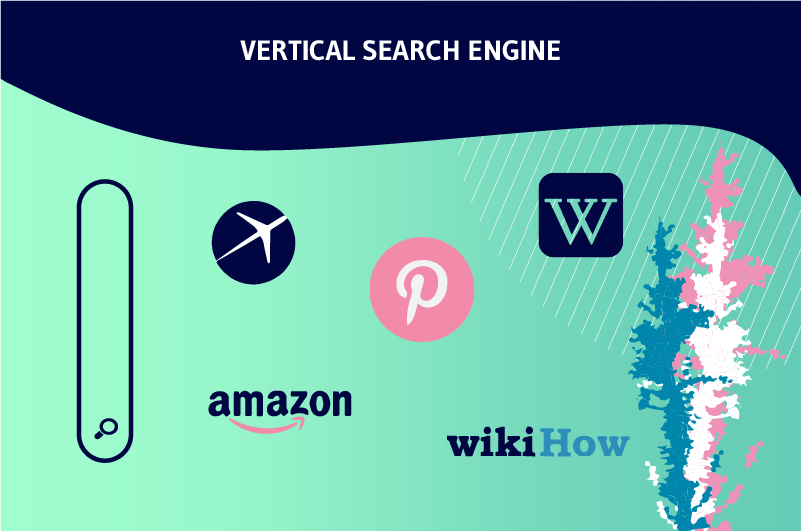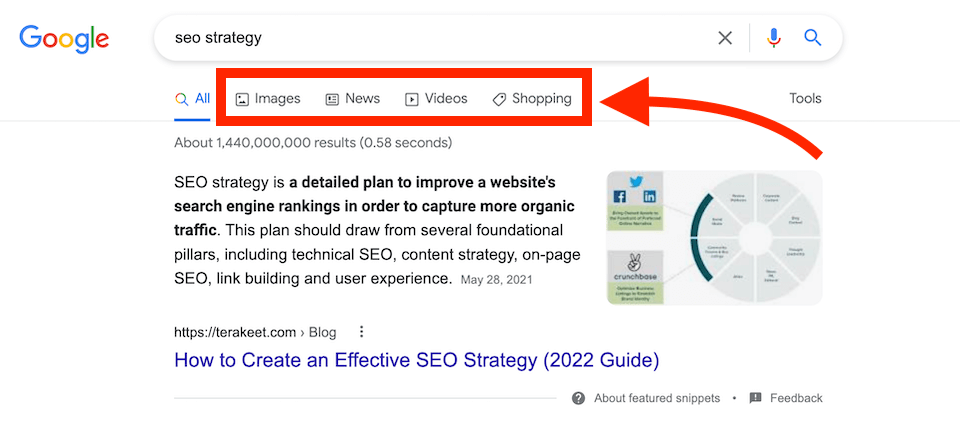Uncover the hidden power of vertical search engines! Discover how they revolutionize your online research and browsing experience.

Image courtesy of via DALL-E 3
Table of Contents
Introduction to Vertical Search
Welcome, young explorers, to the fascinating world of vertical search! Have you ever wondered how search engines can help you find specific information quickly and easily? Well, that’s where vertical search comes in. Let’s dive into what vertical search means and why it’s different from general search engines.
What Vertical Search Means
Imagine you’re searching for information about dinosaurs. Instead of using a general search engine like Google, you could use a vertical search engine that focuses specifically on dinosaurs. Vertical search is all about honing in on a particular topic or area to give you the most relevant results. It’s like having a specialized tool for finding exactly what you need!
Why Vertical Search is Important
Vertical search is super important because it helps you find detailed information quickly. Instead of sifting through tons of irrelevant search results, vertical search engines narrow down the focus to give you exactly what you’re looking for. Whether you’re researching your favorite animals, exploring new hobbies, or studying for school, vertical search engines can be your best friend in finding specific information in a flash!
How Vertical Search Works
Vertical search engines work differently from general search engines because they focus on specific topics or areas. These specialized search engines use algorithms that are tailored to the particular subject matter they cover. These algorithms are designed to understand the context of the search query and deliver results that are more relevant to that specific topic.
Examples of Vertical Search Engines
Some popular examples of vertical search engines include Expedia for travel, Amazon for shopping, WebMD for medical information, and Indeed for job searches. Each of these search engines is dedicated to providing users with detailed and tailored results in their respective fields. By using these specialized search engines, users can find information faster and more accurately than they would with a general search engine.
Types of Vertical Search Engines
Vertical search engines come in various types, each focusing on specific fields or niches to provide users with more tailored results. Let’s explore some of these types:

Image courtesy of www.contentninja.in via Google Images
Travel Search Engines
Travel search engines are designed to help users find information related to their travel needs, such as flights, hotels, car rentals, and vacation packages. These platforms gather data from multiple sources to offer users a comprehensive view of available options and prices in the travel industry.
Shopping Search Engines
Shopping search engines specialize in helping users find and compare products from various online retailers. Users can search for a specific item and see prices from different sellers, enabling them to make informed purchasing decisions without having to visit multiple websites.
Medical Search Engines
Medical search engines focus on providing users with accurate and reliable health information. These platforms can help users research medical conditions, find healthcare providers, and access resources for maintaining their well-being. Medical search engines are valuable tools for individuals seeking trustworthy health-related information.
Job Search Engines
Job search engines are dedicated to helping users find employment opportunities that match their skills and interests. These platforms aggregate job listings from various sources, allowing users to search for jobs based on criteria such as location, industry, and job type. Job search engines make it easier for job seekers to identify relevant job openings in their desired field.
Benefits of Vertical Search
Vertical search engines are designed to provide users with more accurate and relevant results tailored to a specific topic or area. Unlike general search engines that may offer a wide range of information, vertical search engines focus on delivering targeted content that meets the user’s specific needs. This helps users avoid sifting through irrelevant information and ensures they find the most precise answers to their queries.
Saves Time
One of the key benefits of using vertical search engines is the time-saving advantage they offer. By honing in on a particular subject or industry, vertical search engines cut down on the time it takes to find the information you are looking for. Users can quickly access detailed and specialized content without having to wade through pages of unrelated search results, making the search process more efficient and effective.
Specialized Content
Vertical search engines are known for providing users with access to content that is more specialized and detailed compared to what general search engines offer. Whether you are searching for specific medical information, looking for the best travel deals, or seeking job opportunities in a particular field, vertical search engines deliver focused results that cater to your unique requirements. This specialized content can help users make more informed decisions and find exactly what they need without wasting time on irrelevant data.
Comparing Vertical Search and General Search Engines
General search engines, like Google or Bing, cover a wide range of topics. They are like a big library with books on every subject you can think of. On the other hand, vertical search engines focus on one specific topic or area, like a library that only has books about dinosaurs. So, general search engines have a broad reach, while vertical search engines go deep into a single topic.

Image courtesy of www.twaino.com via Google Images
Search Results Quality
When you search for something on a general search engine, you might get results from all kinds of websites, some relevant and some not so much. But with a vertical search engine, the results are more focused and specific to your topic. It’s like going to a bookstore and finding a whole section dedicated to just the type of books you like to read. So, vertical search engines often provide higher quality and more relevant search results compared to general search engines.
When to Use Vertical Search
Vertical search engines are incredibly useful tools when you need to delve deep into a specific topic or area. Let’s explore some scenarios where using a vertical search engine would be more beneficial than a general search engine:
For Detailed Information
If you are conducting research or need comprehensive details on a particular subject, vertical search engines are your go-to option. They are tailored to provide in-depth information on specific topics, making them perfect for detailed searches. So, next time you need thorough information on a specific subject, turn to a vertical search engine.
For Niche Interests
Vertical search engines are particularly handy when you have niche interests or need information on a specialized topic. If you are looking for content related to a unique hobby, industry, or area of expertise, a vertical search engine will offer you more relevant results compared to a general search engine. These platforms cater specifically to niche interests, ensuring you find the information you’re looking for with precision.
Tips for Effective Vertical Search
When using vertical search engines, there are a few strategies you can employ to ensure you get the best and most relevant results. Here are some tips to help you conduct effective vertical searches:

Image courtesy of terakeet.com via Google Images
Use Specific Keywords
One of the most important aspects of conducting an effective vertical search is using specific keywords related to the topic you are researching. By entering precise keywords that directly relate to your search query, you are more likely to receive accurate and targeted results. For example, if you are looking for information on popular vacation destinations, using keywords like “best travel destinations” or “top vacation spots” can help narrow down your search and provide you with more relevant information.
Refine Your Search
After entering your initial search query, you may find that you have received a large number of results that are not exactly what you were looking for. In this case, it’s helpful to utilize the filtering and refining options provided by the vertical search engine. Many vertical search engines offer the ability to filter results by criteria such as location, price range, or specific features. By refining your search in this way, you can tailor the results to meet your exact requirements and find the information you need more quickly and accurately.
Future of Vertical Search
One exciting area for the future of vertical search is the integration of artificial intelligence (AI) and machine learning. These advanced technologies have the potential to revolutionize how vertical search engines operate. By analyzing user behavior, preferences, and interactions with search results, AI can tailor search results to provide more personalized and relevant information. Machine learning algorithms can continuously learn and improve, leading to more accurate and efficient search results over time.
Integration with Other Technologies
Another promising avenue for the future of vertical search is the integration with other emerging technologies like voice search and augmented reality. Voice search allows users to speak their search queries instead of typing them, offering a more convenient and hands-free search experience. Augmented reality can enhance search results by overlaying relevant information onto the user’s real-world environment, making it easier to find and interact with specific content. As these technologies continue to evolve, they could significantly enhance the user experience and effectiveness of vertical search engines.
Conclusion
In conclusion, vertical search engines play a crucial role in helping users find specific and detailed information quickly and accurately. Unlike general search engines that cover a wide range of topics, vertical search engines focus on a particular area, providing specialized content that is tailored to the user’s needs. The importance of vertical search cannot be overstated, especially when it comes to niche interests and detailed searches.

Image courtesy of www.twaino.com via Google Images
Throughout this article, we have explored the concept of vertical search and its significance in today’s digital landscape. From discussing how vertical search engines work to highlighting the benefits of using them, it is evident that vertical search offers users a more efficient and effective way to access information that is relevant to their specific interests.
By utilizing specific keywords, refining search results, and understanding when to use vertical search engines, users can maximize the potential of these specialized tools to obtain the most accurate and detailed information available. As technology continues to advance, the future of vertical search looks promising with the integration of AI, machine learning, and other cutting-edge technologies.
Overall, vertical search engines provide a valuable resource for individuals seeking in-depth knowledge on a particular topic or field. By leveraging the unique capabilities of vertical search, users can enhance their search experience and access the information they need with precision and efficiency.
FAQ
What is vertical search?
Vertical search is when you use a search engine that focuses on a specific topic or area. Instead of searching for everything on the internet, vertical search engines help you find detailed information quickly about a particular subject.
How does a vertical search engine work?
Vertical search engines work by using specialized algorithms that are designed to focus on specific searches. These algorithms help the search engine to provide more accurate and relevant results related to the particular topic or area of interest.
Can vertical search engines be used for any topic?
Vertical search engines are limited to specific topics or areas of interest. They are specialized to provide detailed information on a particular subject, so you may not always find results for every topic. If you’re looking for information on a niche interest or specific field, vertical search engines are a handy tool to use.







